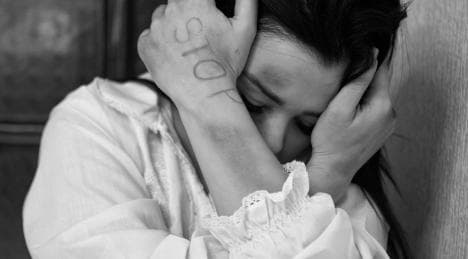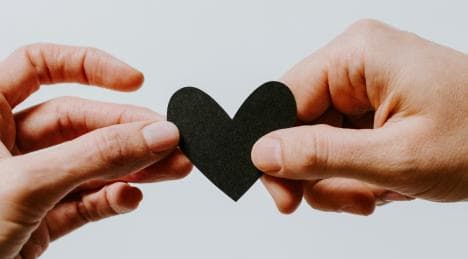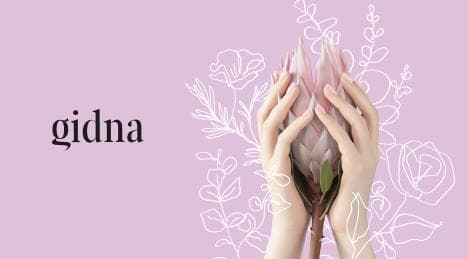Alona Panchuk, the wife of Senior Sergeant of the National Guard of Ukraine Andrii Panchuk, has been waiting for her beloved husband for more than 2.5 years of the Russian-Ukrainian war. A couple last spoke on the phone on March 21, 2022. Since March 23, the serviceman has been officially considered missing.
Andrii Panchuk was among the first to fight with the enemy in February 2022. In March of the same year, the man went on a combat mission near Mariinka and did not return. Andrii's family did not receive any confirmation of his death or news from captivity. His wife Alona who undergoes the psychological support program at the GIDNA project, shares what it’s like to live for years awaiting any information about her husband’s fate in the war, what challenges she faces in everyday life, and what helps her to stay strong in these tough times.
Alona, please tell about your marriage life with Andrii.
We’d been dating for only half a year, and then Andrii asked me to marry him. He insisted on that, rather than classically proposing to me (smiling). Then I moved to the Andrii side in Chernivtsi, and we immediately started planning the wedding. On September 21, we got married.
When the full-scale war began, and I was left alone here in Chernivtsi, he was very caring to me. He never showed any anxiety, always spoke calmly, and insisted I don’t ignore the air-strike alarm and go to shelter. Being at the front, he really supported me from a distance.
Where did Andrii serve? Do you know the circumstances of your husband’s disappearance?
Andrii served under contract in the National Guard of Ukraine before the full-scale war started. On February 2, 2022, he went on a rotation to Mariinka and was supposed to return nearly in April-May. But on March 23, conducting a combat mission, Andrii and his other comrades went missing.
On the eve of Women’s Day, Andrii was in Volnovakha, there was a heavy battle. But he called me and asked to stay at home for a while before work on March 8. At first, I was scared, thinking that maybe shelling or the capture of Chernivtsi was planned. I called all my relatives to check. Then on March 8 in the morning, a courier called me and said it was a flower delivery for me. And a postcard is attached, a beautiful one… Bella tore it over time, but I glued it back together.
Bella is a dog that Andrii brought home when she was 3 months old. I am very grateful to him for that. Bella has been my support for these 2.5 years. She is always with me. As soon as she sees me crying, she immediately jumps onto my chest and starts licking my tears. Bella and Andrii have a strong connection, it belongs to him even more than me.
Alona, when did you decide to apply for therapy at GIDNA?
I found out about the project two months ago and applied right away. I take Gestalt therapy seminars, and our mentor gave good recommendations for GIDNA specialists and recommended applying to the project. And I did it because the trauma does not go away on its own.
Who are you working with on the project? Share your feedback.
I work with Natalia Prysiazhniuk. I feel extremely comfortable with her, so I open up. I am a very closed-minded person by nature, it is difficult for me to trust someone or show emotion. As women, we are taught from a young age to be patient, in words are “convenient” for society, as a result in adulthood we often neglect our own needs. With Natalia, I can talk about everything that worries me. And then I understand that I am ok, and the way I experience my emotions is also natural.
So, before therapy, did you have any doubts about this?
Of course, I did. I imagined how the wife of a missing person should behave — to live in constant suffering. I couldn't even go out for a cup of tea, no matter how much my loved ones persuaded me.
And what would Andrii say about that?
He would scold me (laughs). Andrii always pushed me to enjoy life more.
And what would you advise other women who have doubts about the therapy too?
You definitely need to do this. Lock inside is not a solution, because we have to live, to pull ourselves and our loved ones out. I was in that psychosomatic state when the illnesses changed one after another. Now the 5 stages of grief, which I've been going through in a circle for 2.5 years, are a little easier for me. I know how to get myself out of a critical state properly, how not to fall into deep depression, and how to help others.
What kind of support do you think society should provide to the families of missing soldiers?
I want the missing soldiers to be remembered as equals to other heroes. The first public mention of the names of all the defenders who disappeared in the war took place only this summer. A flag with the fighters’ names was raised on Hoverla as a symbol of the highest respect for the defenders. I also took the National Guard flag to Hoverla, which Andrii brought from the rotation, and left it at the top. I want Andrii to get to the top and see this.
About the communication culture with relatives of missing soldiers in war and prisoners of war.
Another hot topic that needs to be covered in Ukrainian society is the culture of communication with relatives of missing soldiers in war and prisoners of war.
Alona Panchuk confesses that short phrases carelessly thrown by acquaintances: “Have you managed your trauma?”, “You’re waiting too long, don’t worry — you’ll find someone else!”, makes a woman spend the whole day in tears, deepening her feelings of guilt and helplessness.
It is important to understand that our society is not trained to communicate with people experiencing an uncertain loss. Even if you have good intentions to support a friend or acquaintance experiencing an uncertain loss, first estimate everything carefully whether your words won’t harm her.
It would be handy to advise the specialists who can support a woman's vulnerable psychological state and help her build internal resilience.
Women whose close ones went missing during the war or are in captivity can receive free psychological help on the GIDNA project from the Future for Ukraine Foundation.
The experience of Alona and other participants proves that a woman is worth living her own life despite uncertainty!
For information. During the full-scale war, Ukraine returned more than 3,500 of its defenders from russian captivity. But the struggle continues, thousands of Ukrainian families are still waiting for news about their relatives who disappeared during the hostilities. Today, about more than 55,000 Ukrainians including military personnel, civilians, and children are considered missing.




